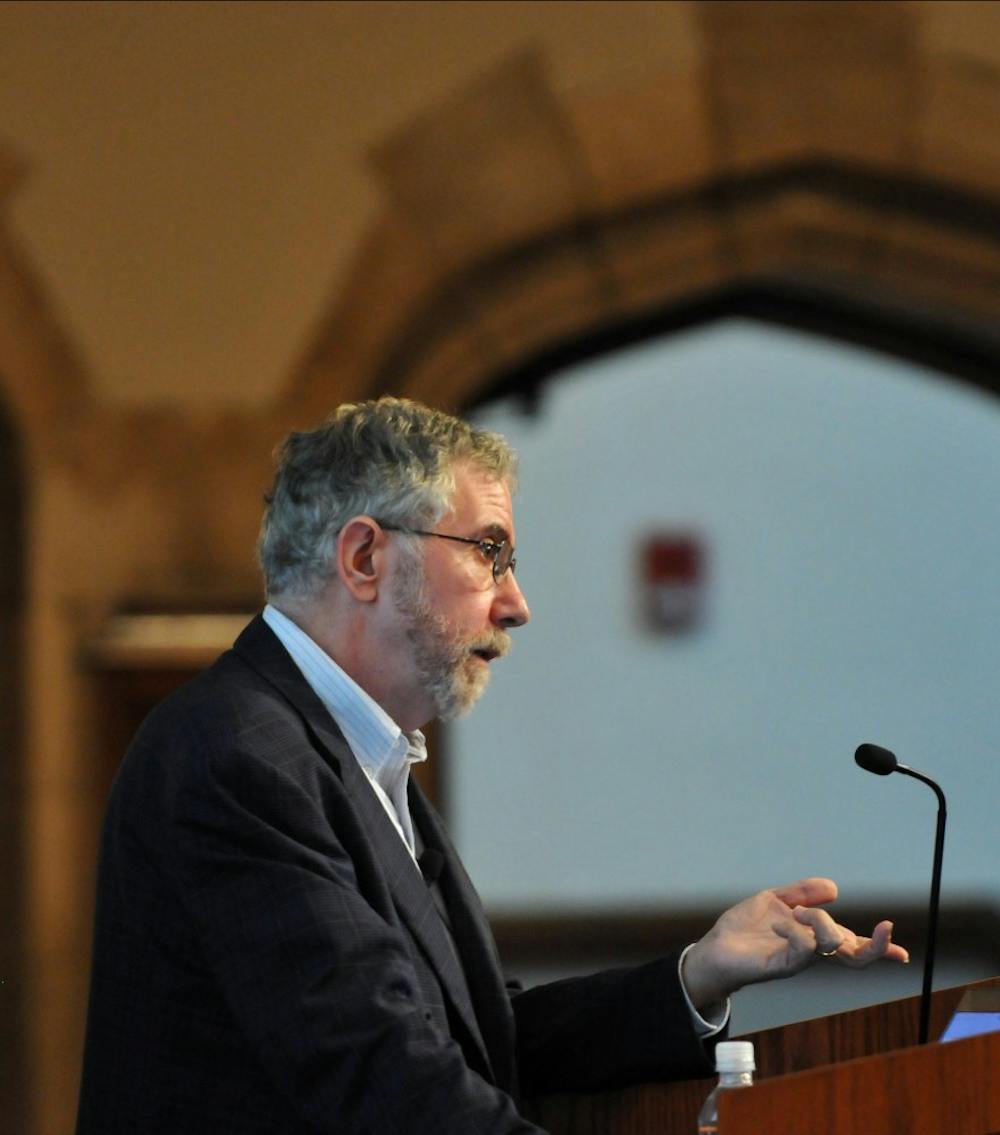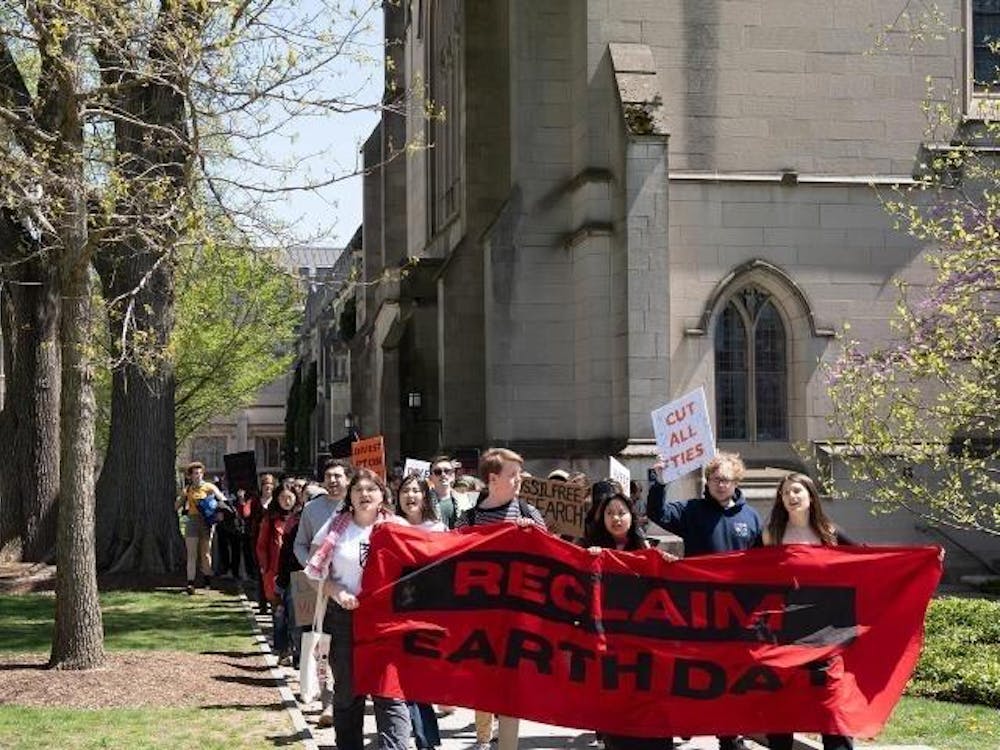Paul Krugman, the economics professor known for his regular columns in The New York Times, will retire from his position at the University in June 2015.
Krugman is currently an economics and Wilson School professor. He won the Nobel Prize in Economics in 2008.
Krugman will be joining the faculty of the Graduate Center, City University of New York, as a professor in the Ph.D. program in Economics while also serving as a distinguished scholar at the Graduate Center’s Luxembourg Income Study Center, he announced in a blog post for The New York Times.
“I was thinking for a couple of years about, not about leaving exactly, but trying to think about what I should be doing because, although I had a great experience, I’m way, way overcommitted and looking for ways to simplify my life,” Krugman said in an interview with The Daily Princetonian.
Krugman said that he informed the University of his decision several weeks ago.
“He's been a valued member of our faculty and we appreciate his 14 years at Princeton,” University Spokesperson Martin Mbugua said. “We wish him well in his future endeavors."
Krugman mentioned the difficulties of his frequent commutes to New York and his growing interest in public policy as opposed to academic research as motivations for his departure. But Krugman emphasized that Princeton has provided an incredibly academic environment.
“I have nothing but positive things to say about Princeton,” Krugman said, who has a house in town. “This is the pull of being able to do more of what I want to do now that I’m 61 rather than anything at all that would be dissatisfied with Princeton.”
Uwe Reinhardt, a colleague of Krugman’s in the economics department, reaffirmed that Krugman’s decision to leave was the natural choice given his growing professional interest in income inequality and public policy.
“He naturally gravitated towards [income equality] because it’s becoming quite a topic. And so in that regard, Princeton really isn’t the best place, given the strength of the Luxembourg Institute, which focuses on that issue,” Reinhardt said.
Reinhardt remarked that he was sad to see Krugman go on a personal level, noting that he describes Krugman as being a “nice guy” and as having an “electrifying mind.”

“I hope we can continue our friendship. It think it was very good to have someone with his stature who actually did participate in the public debates,” Reinhardt said.
Krugman said that when he reached out to the Graduate Center he was purely seeking an academic base in New York rather than a job, but when they offered him a teaching position, he accepted. Krugman added that he wouldn’t have a full teaching schedule.
“It’s disappointing and unfortunate for us, but understandable for him,” Chair of the economics department Gene Grossman said of Krugman’s impending departure. “I don’t think it’s about a better opportunity for research and certainly not for teaching, but the fact that in a sense he’s able to do his research and writing wherever he is, and New York is where he wants to be. Between the students he’s touched and the public outreach he’s given us, he’s made a great contribution.”
Grossman added that Krugman has played an important role in the University’s public interface and that he hopes the department can stay in contact with him once he has left the University.
Mark Zhang ’17, a student in Krugman’s class, ECO 348: The Great Recession: Causes, Consequences, and Remedies, said that he likes Krugman’s class and was disappointed that he would be leaving the University.
“There is no substitute for it. It’s an incredible experience,” Zhang said of Krugman’s class. “[His departure] is infinitely regrettable because he’s such a fascinating speaker and person.”









